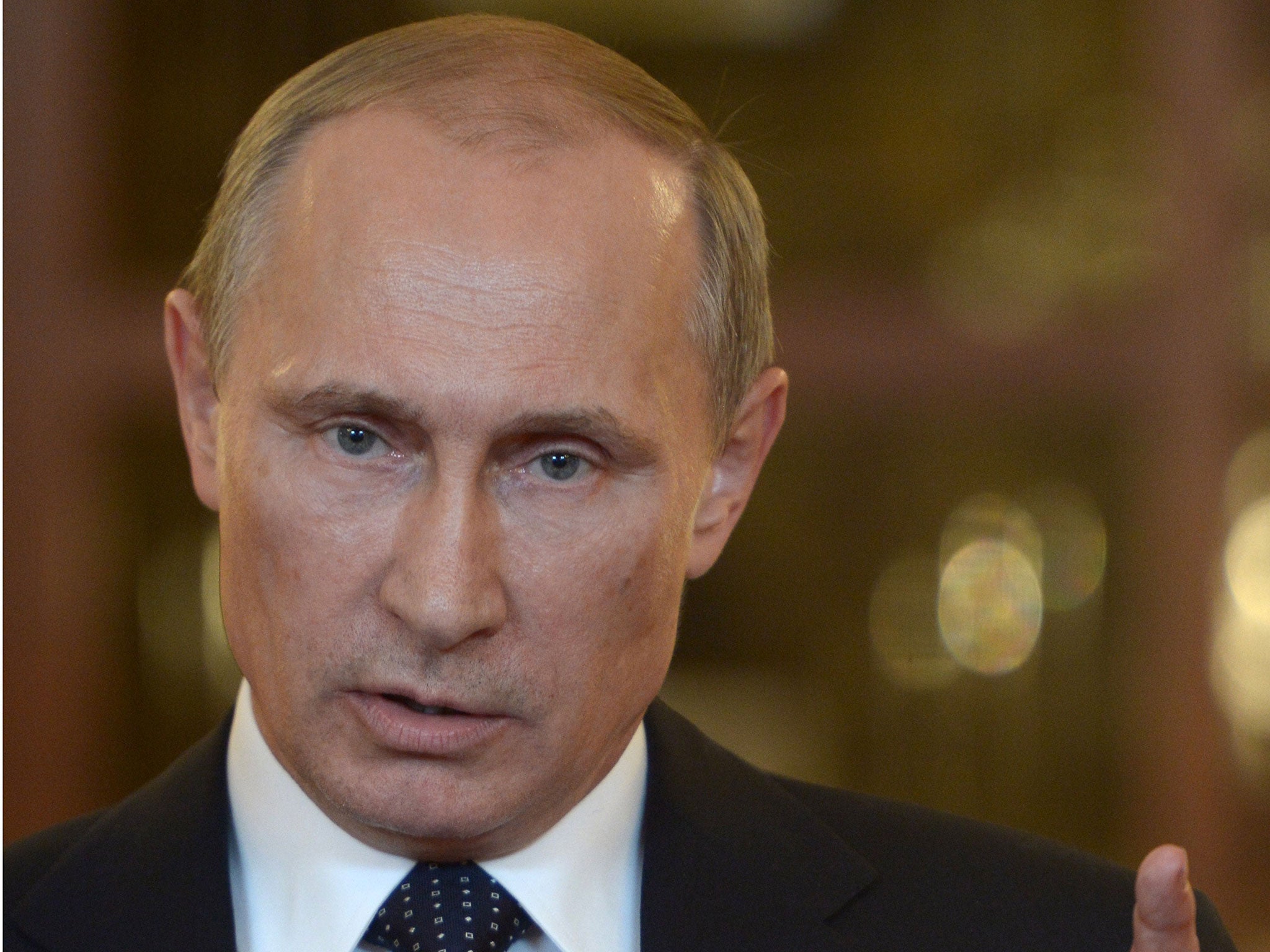Russia to send humanitarian convoy to eastern Ukraine
Ukraine said it will only support the convoy if other international bodies, including the Red Cross, are involved

Your support helps us to tell the story
From reproductive rights to climate change to Big Tech, The Independent is on the ground when the story is developing. Whether it's investigating the financials of Elon Musk's pro-Trump PAC or producing our latest documentary, 'The A Word', which shines a light on the American women fighting for reproductive rights, we know how important it is to parse out the facts from the messaging.
At such a critical moment in US history, we need reporters on the ground. Your donation allows us to keep sending journalists to speak to both sides of the story.
The Independent is trusted by Americans across the entire political spectrum. And unlike many other quality news outlets, we choose not to lock Americans out of our reporting and analysis with paywalls. We believe quality journalism should be available to everyone, paid for by those who can afford it.
Your support makes all the difference.Russia announced on Monday that it will send a humanitarian aid convoy into eastern Ukraine in co-operation with the International Red Cross, amid fears in Kiev and the West that the move is a pretext for sending Russian troops across the border.
The Kremlin said in a statement which did not disclose when the convoy was leaving: "It was noted that the Russian side, in collaboration with representatives of the International Committee of the Red Cross, is sending an aid convoy to Ukraine." The Red Cross made no immediate comment.
In the last week, Ukrainian government forces have been closing in on the few remaining pro-Russian rebel strongholds in eastern Ukraine, including Donetsk - the largest rebel-held city. Hundreds of thousands of residents have been fleeing the fighting.
Ukrainian President Petro Poroshenko said he would only support an aid mission with Russia if other international bodies, including the Red Cross and the European Union, were involved.
Poroshenko added that he had spoke to US President Barack Obama, who backed the international plan.
The cautious support comes after the West strongly warned Russia that any attempt to send its military personnel into Ukraine under the guise of humanitarian assistance would be regarded as an invasion.
With Ukraine reporting Russia has massed 45,000 troops on its border, NATO said there was a "high probability" that Moscow could intervene militarily in the country's east.
Prior to the announcement on Monday, Russian President Vladimir Putin and European Commission chief Jose Manuel Barroso spoke on the phone.
Barroso's office said in a statement that he had warned Russia "against any unilateral military actions in Ukraine, under any pretext, including humanitarian."
Russian Foreign Minister Sergey Lavrov confirmed Russia had agreed on the details of a humanitarian mission with the Ukrainian leadership, and added he hoped "our Western partners will not put a spanner in the works."
Regarding Kiev's gains in the east of the country, Mr Lavrov said he viewed the military action as an attempt to force Russian to leave and "and settle it with others who would have a different attitude to our nations’ history, culture, friendship and links that have existed for centuries".
Earlier on Monday, rockets slammed into a high-security prison in the main rebel-held city of Donetsk, igniting a riot that allowed more than 100 prisoners to flee, authorities said.
Donetsk city council spokesman Maxim Rovinsky said a direct rocket hit killed at least one inmate and left three others severely wounded. In the chaos, he said 106 prisoners escaped, included some jailed for murder, robbery and rape.
Many of those in Russian-speaking eastern Ukraine distrust the new central government in Kiev, which came to power after the February ousting of former President Viktor Yanukovych, whose power base was in eastern Ukraine.
Fighting began a month after Russia annexed Ukraine's peninsula of Crimea in March. Ukraine and the West have accused Russia of supplying heavy weapons and other equipment to the rebels in eastern Ukraine, a charge that Russia denies.
UN agencies say more than 1,100 people have been killed including government forces, rebels and civilians in the four months since rebels seized territory in the east and Kiev launched its crackdown.
Additional reporting by AP
Join our commenting forum
Join thought-provoking conversations, follow other Independent readers and see their replies
Comments